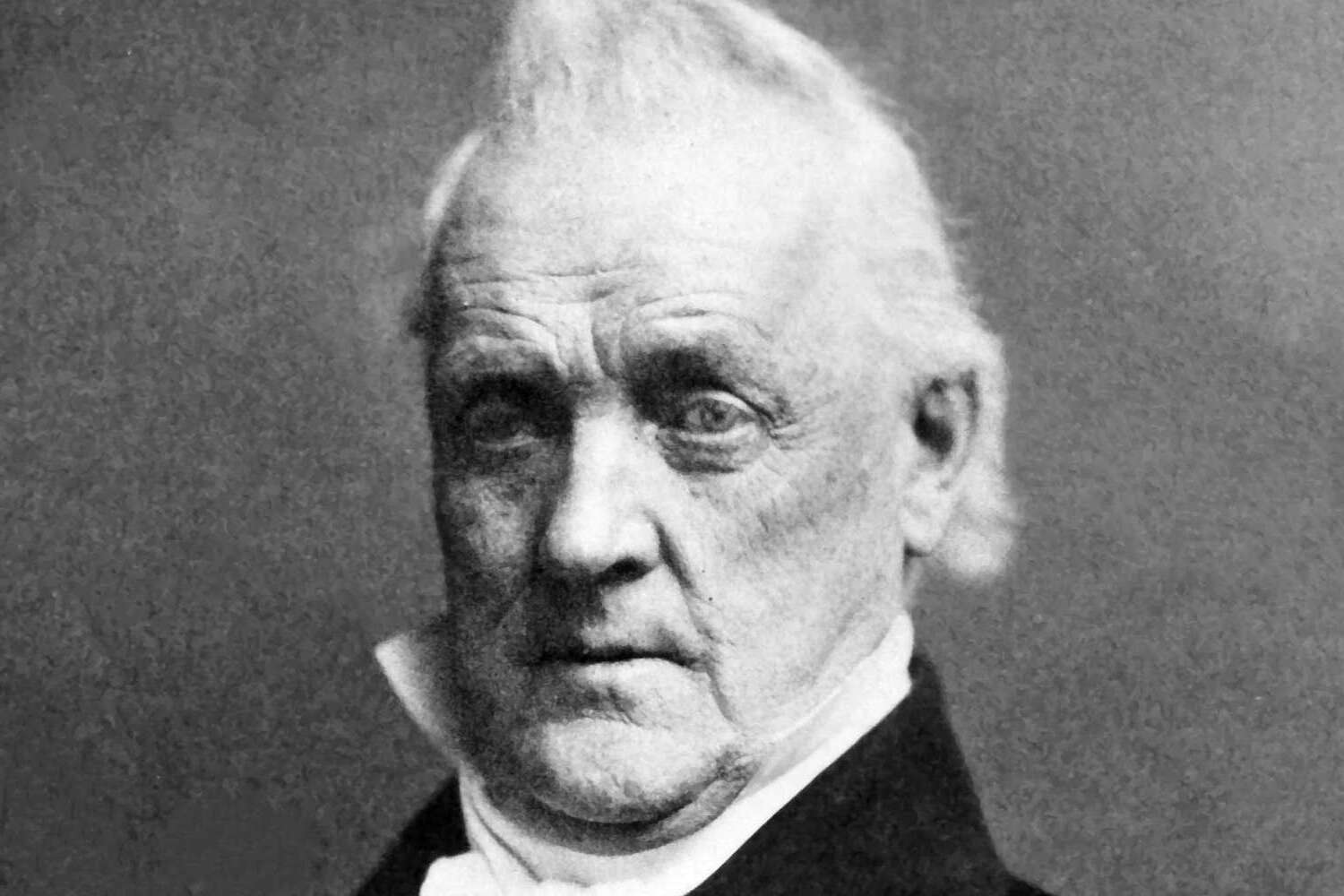
Was James Buchanan gay? This question has intrigued historians and the public alike. James Buchanan, the 15th President of the United States, remains a figure shrouded in mystery regarding his personal life. Born in 1791, Buchanan never married, earning him the nickname "Bachelor President." His close relationship with William Rufus King, a fellow politician, has fueled speculation. Letters between them suggest a deep bond, but concrete evidence of a romantic relationship remains elusive. Historians debate whether Buchanan's bachelorhood and his friendship with King indicate his sexual orientation or simply reflect the norms of male friendships in the 19th century.
Key Takeaways:
- James Buchanan, the 15th President of the United States, had a fascinating early life and education, including being expelled from college before graduating with honors.
- Despite his diplomatic achievements, Buchanan's presidency was marked by controversies and criticisms, leading to his legacy being viewed as both controversial and diplomatically significant.
Early Life and Education
James Buchanan, the 15th President of the United States, had a life filled with intriguing details. Let's dive into some lesser-known facts about his early years and education.
- Born on April 23, 1791, in Cove Gap, Pennsylvania, Buchanan was the second of eleven children.
- His father, James Buchanan Sr., was a successful merchant and farmer, which provided the family with a comfortable lifestyle.
- Buchanan attended Old Stone Academy before enrolling at Dickinson College in Carlisle, Pennsylvania.
- Despite being expelled for bad behavior, he was later readmitted and graduated with honors in 1809.
- He studied law under James Hopkins in Lancaster, Pennsylvania, and was admitted to the bar in 1812.
Political Career Before Presidency
Before becoming President, Buchanan had a long and varied political career. Here are some key moments from that period.
- Buchanan served as a member of the Pennsylvania House of Representatives from 1814 to 1816.
- He was elected to the U.S. House of Representatives in 1820 and served five consecutive terms.
- In 1832, President Andrew Jackson appointed him as the U.S. Minister to Russia.
- Buchanan played a significant role in negotiating the first commercial treaty between the U.S. and Russia.
- He served as a U.S. Senator from Pennsylvania from 1834 to 1845.
Secretary of State and Diplomatic Roles
Buchanan's diplomatic skills were well-regarded, leading to several key appointments.
- President James K. Polk appointed Buchanan as Secretary of State in 1845.
- He was instrumental in negotiating the Oregon Treaty, which settled the boundary dispute with Britain.
- Buchanan also played a role in the Mexican-American War, supporting the Treaty of Guadalupe Hidalgo.
- In 1853, President Franklin Pierce appointed him as the U.S. Minister to the United Kingdom.
- During his time in London, Buchanan helped draft the Ostend Manifesto, advocating for the acquisition of Cuba.
Presidency and Major Events
Buchanan's presidency was marked by significant events and controversies. Let's explore some of them.
- Buchanan was elected President in 1856, defeating John C. Frémont and Millard Fillmore.
- He is the only bachelor President in U.S. history, having never married.
- His niece, Harriet Lane, served as the White House hostess during his presidency.
- Buchanan's presidency saw the infamous Dred Scott decision, which denied citizenship to African Americans.
- He supported the Lecompton Constitution, which aimed to admit Kansas as a slave state.
Personal Life and Legacy
Beyond politics, Buchanan's personal life and legacy offer fascinating insights.
- Buchanan was engaged to Ann Coleman, but she died suddenly in 1819, and he never pursued another romantic relationship.
- He was known for his impeccable manners and formal demeanor.
- Buchanan enjoyed reading and had a vast personal library.
- He was a lifelong Federalist, supporting a strong central government.
- Buchanan retired to his estate, Wheatland, in Lancaster, Pennsylvania, after his presidency.
Controversies and Criticisms
Buchanan's tenure was not without its controversies and criticisms. Here are some notable points.
- He is often criticized for his inability to prevent the secession of Southern states.
- Buchanan believed that states did not have the right to secede but also thought the federal government had no power to stop them.
- His handling of the Panic of 1857, a financial crisis, was widely criticized.
- Buchanan's support for pro-slavery policies alienated many in the North.
- Historians often rank him as one of the least effective Presidents due to his failure to address the nation's divisions.
Death and Posthumous Recognition
Buchanan's life after the presidency and his posthumous recognition are also noteworthy.
- He died on June 1, 1868, at the age of 77, at his home in Wheatland.
- Buchanan was buried in Woodward Hill Cemetery in Lancaster, Pennsylvania.
- His legacy remains controversial, with some viewing him as a failed leader while others acknowledge his diplomatic achievements.
- Buchanan's home, Wheatland, is now a museum and historical site open to the public.
- Despite his controversial presidency, Buchanan's contributions to U.S. diplomacy are still recognized today.
Final Thoughts on James Buchanan
James Buchanan's life and presidency offer a fascinating glimpse into a turbulent period in American history. As the only bachelor president, his personal life has sparked curiosity and speculation. His political career, marked by significant events like the Dred Scott decision and the lead-up to the Civil War, shows the complexities and challenges he faced. Buchanan's legacy remains controversial, with many historians criticizing his inability to prevent the nation from descending into conflict. However, understanding his actions and decisions provides valuable lessons about leadership, governance, and the impact of personal beliefs on public policy. Whether viewed as a failed leader or a misunderstood figure, Buchanan's story is an essential chapter in the American narrative. His life reminds us that history is often a mix of triumphs and failures, shaped by the individuals who live it.
Frequently Asked Questions
Was this page helpful?
Our commitment to delivering trustworthy and engaging content is at the heart of what we do. Each fact on our site is contributed by real users like you, bringing a wealth of diverse insights and information. To ensure the highest standards of accuracy and reliability, our dedicated editors meticulously review each submission. This process guarantees that the facts we share are not only fascinating but also credible. Trust in our commitment to quality and authenticity as you explore and learn with us.


